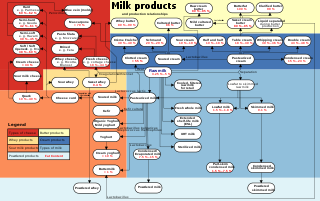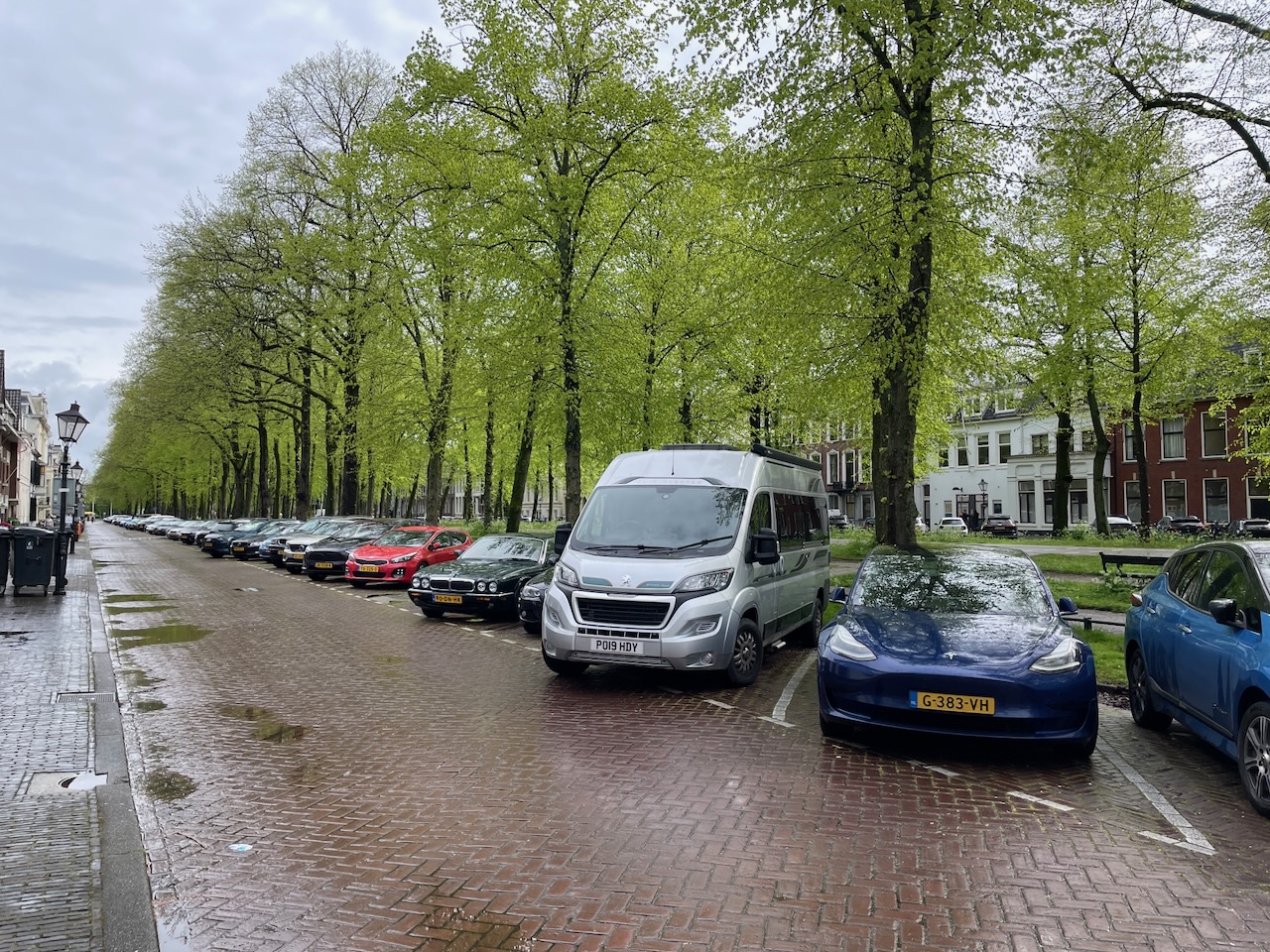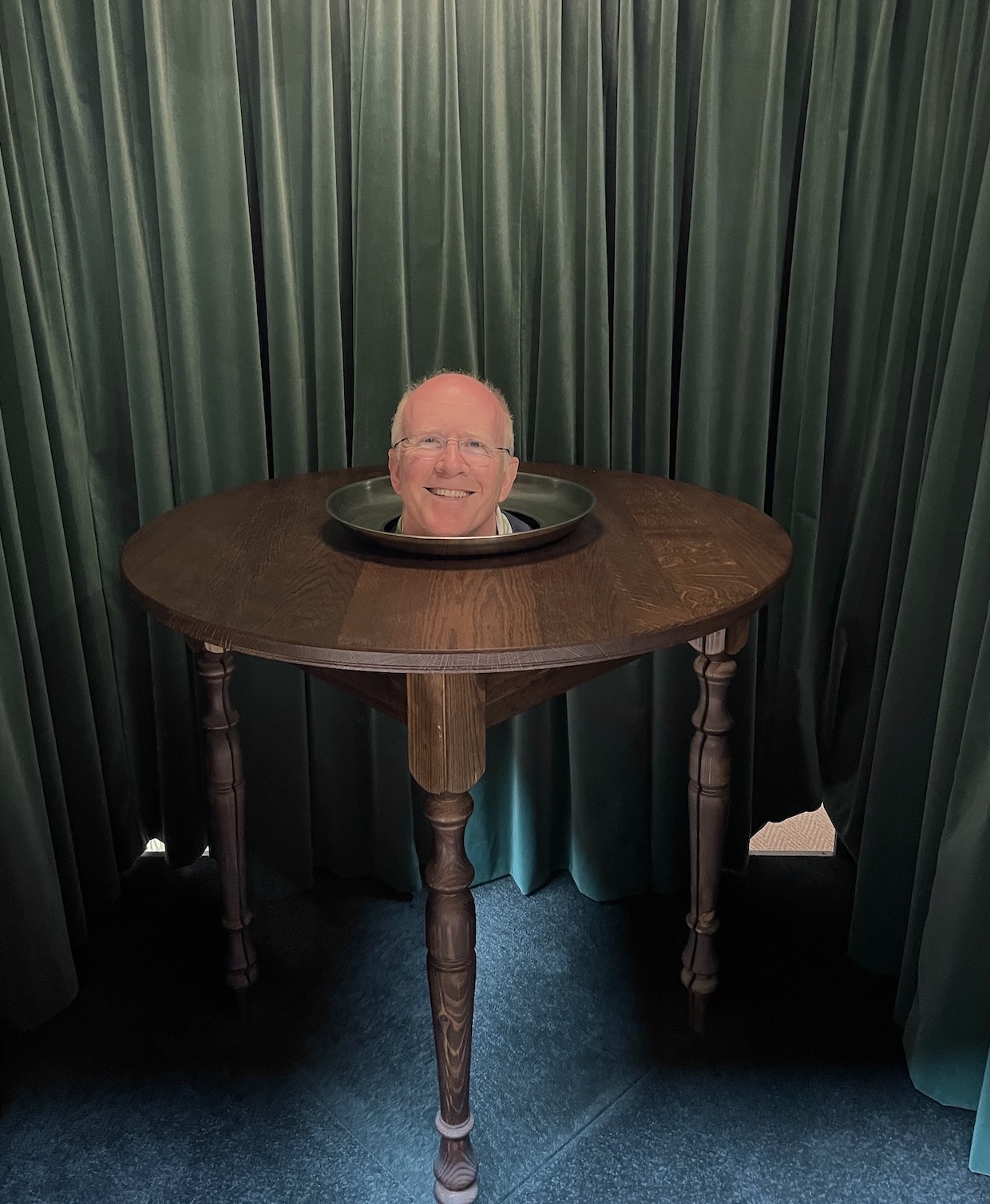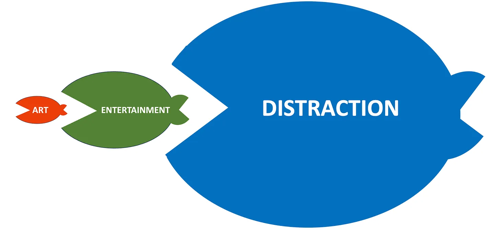On Monday evening, I had a ticket booked to bring me back on the overnight ferry from the Hook of Holland to Harwich. (Here’s a bit of trivia for you: ‘Hook of Holland’ is actually a mistranslation of the Dutch name Hoek van Holland. ‘Hoek’, in Dutch, means ‘corner’, not ‘hook’. And if you know that Holland is only the north-west part of the Netherlands, then it is indeed the bottom-left corner of Holland, which is enlightening to those who, like me, have perused the map wondering what was quite so hook-y about it.)
Anyway, I duly arrived in the area, in my campervan, a few hours early and saw the ferry at the quay but, since you couldn’t check in before 9pm for the 11pm departure, I headed into the town and killed time buying provisions, taking Tilly for a walk, checking email, tidying things up etc. At about 9.30 we drove back to the ferry terminal, pleased with our efficiency and promptness… only to find the gate closed, the entrance area in darkness, and nobody to be seen.
Eh? what??
I started checking my emails, e-tickets and everything carefully, and discovered to my dismay that the ferry actually departed at 10pm, not 11pm, which meant that, having been pottering around for hours just a mile away, I had managed to arrive 15 minutes after the check-in had closed. How could I have been so stupid? Had I just been remembering the outbound journey, where the ferry did indeed depart Harwich at 11pm?
Eventually I realised that it was slightly more subtle than that. When I had made the booking, I had diligently entered all the relevant times into my calendar… but forgot to specify the timezone on the entries for the return journey. I used to do so much international travel that timezones were a regular part of my life, but since I’ve barely left the country since Covid, I’ve had many years to get out of the habit! The departure time had been correctly entered as 10pm… but in UK time. And so, during the two weeks I had spent in the Netherlands, it had always been helpfully displayed, on my phone, iPad and laptop, as 11pm. Only an hour’s offset, and exactly the same time as I had caught the outbound ferry, so I never thought to question it! Bother!
And so I found myself sitting on the dock of the bay, at 10-o’clock at night, with nowhere to go.
Fortunately, I had bought a Flexi ticket, and even though it didn’t technically entitle me to change my travel plans once the ferry was already sailing off into the distance, the people at Stena Line were very understanding, switching me to the ferry that left the following afternoon. And since I happened to be in a vehicle containing a bed, loo, water supply and heater, I was able to use the wonderful Park4Night to find a nearby spot where I could spend a peaceful night.
The following day actually turned out to be rather a good one! It was sunny, my car park was only a few hundred yards from a nice beach where Tilly ran free, and then with some diligent Googling we discovered a splendid bakery to get provisions for breakfast in a nearby town, and a country park in which to stroll. We hadn’t seen much sunshine for a few days, so it was a delightful way to end our trip… and a lovely contrast to the dark, abandoned ferry port of the night before!

All was therefore well that ended well. But I shall be checking that ‘timezone’ field in my calendar app more carefully in future!














Recent Comments